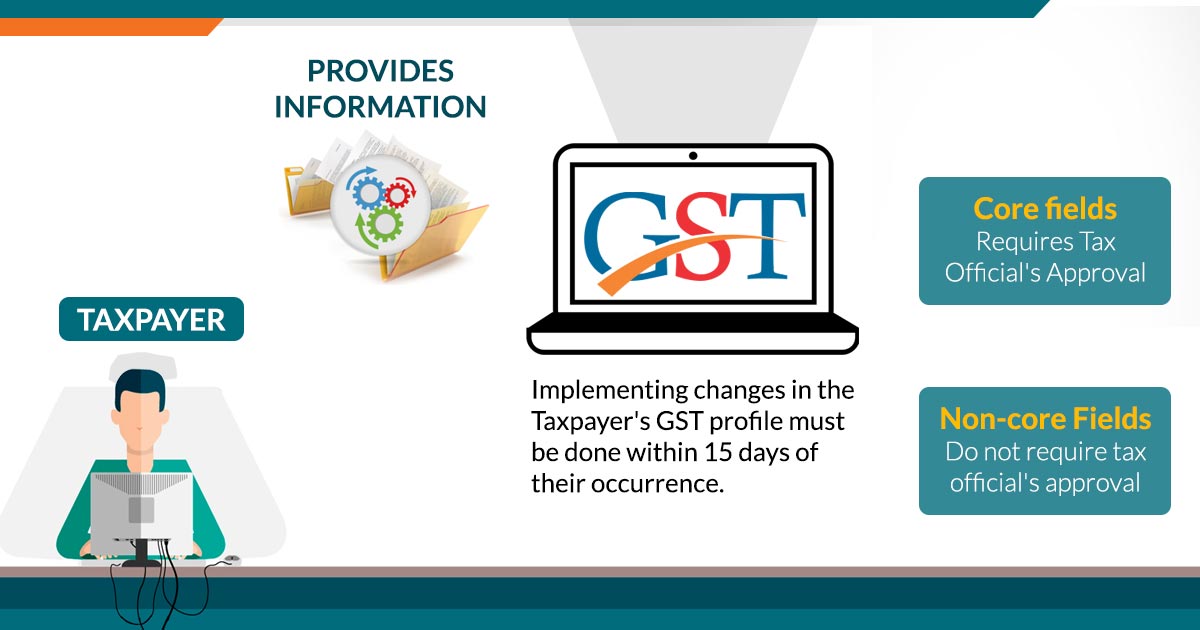Stay Clear Of Typical Blunders in Singapore GST Registration for Your Service
Stay Clear Of Typical Blunders in Singapore GST Registration for Your Service
Blog Article
The Ultimate Guide to Streamlining the GST Registration Refine and Requirements for Small Organization Owners

Comprehending GST Fundamentals
To comprehend the principles of the Item and Provider Tax (GST) system, little business proprietors should initially recognize its underlying principles and effects. Under the GST regime, businesses are required to gather and register tax on behalf of the government, making sure transparency and conformity.
One of the vital principles of GST is input tax obligation debt, which enables businesses to assert credit scores for tax obligations paid on their purchases. This system prevents the cascading impact of tax obligations and promotes effectiveness in the tax obligation system. Additionally, GST is a destination-based tax obligation, meaning that the tax is imposed at the point of usage as opposed to the point of origin. This makes certain fair circulation of tax obligation revenue among states based upon where the goods or services are consumed. Comprehending these standard concepts is important for local business owners to navigate the intricacies of the GST system and make certain compliance with the law.
Eligibility Requirements for Registration
Having established a foundational understanding of GST principles, local business proprietors need to currently fulfill certain qualification standards to wage the enrollment procedure. In India, entities engaged in the supply of goods or services with a yearly accumulation turn over going beyond Rs. 40 lakhs (Rs. 10 lakhs for unique group states) are called for to sign up for GST. Furthermore, specific services such as those entailed in inter-state supply of products, informal taxed persons, and those required to pay tax under the reverse charge mechanism must register for GST irrespective of their turnover. Furthermore, businesses that were registered under the previous tax obligation program (VAT, service tax obligation, and so on) are likewise mandated to register under GST. Agricultural companies that just provide generate out of main production are excluded from GST registration. It is crucial for company owner to very carefully evaluate their eligibility based on these standards to ensure compliance with the legislation and prevent any fines for non-compliance.
Papers Needed for GST Registration

Simplified Registration Refine Steps
Complying with the collection and confirmation of the requisite records, the enrollment process for GST can be navigated with a collection web link of streamlined actions designed to facilitate effective compliance for little organization proprietors. Upon effective confirmation, an Application Reference Number (ARN) is issued, indicating the completion of the GST registration process. By complying with these streamlined actions, little service proprietors can properly sign up for GST and make certain conformity with tax obligation laws.
Tips for Ensuring Conformity
To keep governing adherence and operational integrity, persistent oversight and positive procedures are essential in making certain conformity with GST needs for tiny business owners. Small business owners must stay upgraded with GST guidelines, submitting due dates, and any type of modifications in tax rates to avoid penalties and maintain a good standing with tax obligation authorities. Participating in GST recognition workshops or training programs can boost understanding and conformity with GST guidelines, eventually benefiting the company in the long run.
Conclusion
To conclude, small company proprietors should understand the basics of GST, fulfill the qualification requirements, gather necessary records, and adhere to the simplified registration procedure actions to make sure compliance. By simplifying the GST enrollment procedure and demands, local business proprietors can prevent fines and run their services smoothly within the legal framework - Singapore GST Registration. It is crucial for local business owners to remain compliant and useful link enlightened with GST laws to preserve a successful business procedure
Little company owners looking for GST registration need to guarantee they gather and send the required records to complete the enrollment process efficiently. The records required for GST enrollment generally consist of proof of service enrollment or unification, PAN (Permanent Account Number) card of the business identification, address and entity proof of the promoters/partners/directors, photos, address proof of the area of organization, bank account declarations or terminated cheques, and consent forms. Participating in GST recognition workshops or training programs can boost understanding and conformity with GST laws, eventually benefiting the organization in the lengthy run.
By simplifying the GST enrollment procedure and demands, tiny organization owners can stay clear of penalties and operate their organizations smoothly within the lawful structure. It is vital for little organization owners to stay educated and certified with GST regulations to preserve find out a successful organization procedure.
Report this page